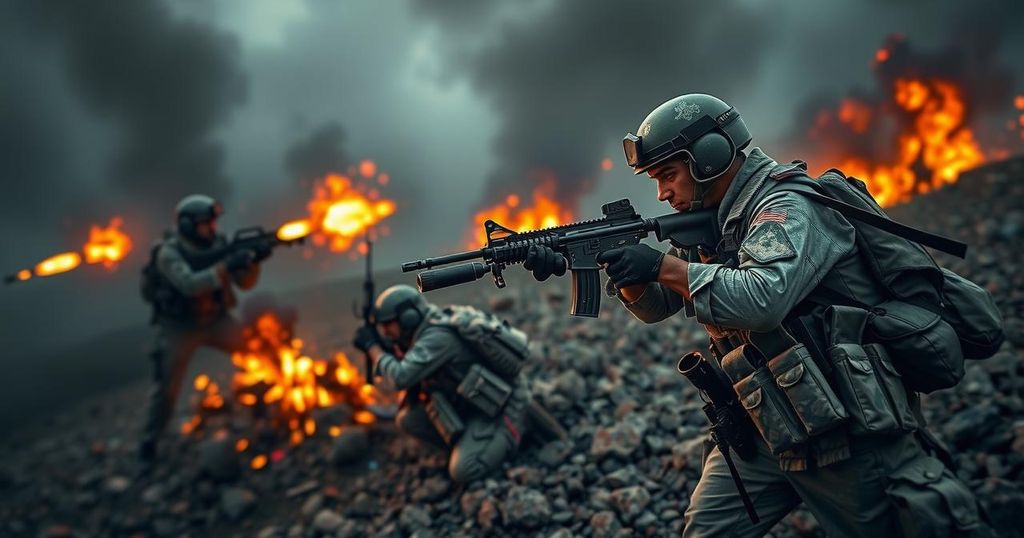Escalating Tensions in Israel-Hezbollah Ceasefire: Strikes and Retaliations

The ceasefire between Israel and Hezbollah is being severely tested following recent hostilities, including shelling and airstrikes, which have resulted in casualties. Both parties blame each other for violating the truce orchestrated by the U.S. and France. The effectiveness of the ceasefire now largely depends on the international monitoring committee and ongoing diplomatic efforts to ensure compliance and peace in the turbulent region.
The fragile ceasefire between Israel and Hezbollah is undergoing significant strain following recent military exchanges. After Hezbollah launched mortar shells at an Israeli military outpost, Israel retaliated with its most extensive air strike campaign since the truce was established, resulting in casualties in Lebanon. Observers characterize these exchanges as perilous moments that threaten the cessation of hostilities, with both parties accusing each other of breaching the ceasefire agreement brokered by the United States and France.
The conditions of the ceasefire stipulate that Israel must refrain from offensive military actions in Lebanon, while Lebanon is tasked with preventing armed assaults on Israel. Following the mortar attack, Israeli officials articulated intentions for a robust response, highlighting the increasing tensions between the two entities. Hezbollah characterized its mortar fire as a defensive measure in response to Israeli violations and maintained that it remains prepared for potential developments in the conflict. The Lebanese parliament also noted a series of violations recorded against Israel, prompting calls for urgent intervention from international monitoring bodies.
As the international community closely monitors these developments, the effectiveness of the ceasefire relies heavily on the actions of the newly formed monitoring committee, which includes representation from the U.S., France, Israel, Lebanon, and the United Nations. Amidst these rising tensions, U.S. officials expressed cautious optimism regarding the overall reduction in violence, emphasizing the need for continued efforts to maintain peace.
Amid the escalating conflict, and with the ceasefire appearing increasingly tenuous, the critical role of international intervention and mediation becomes evident. It remains imperative for both sides to adhere to the agreed-upon terms to prevent further escalation and violence.
The recent violence between Israel and Hezbollah comes amidst a precarious ceasefire arrangement that was established through international mediation involving key nations such as the United States and France. This truce arises from ongoing tensions in the region, primarily instigated by cross-border attacks and military confrontations. Historically, the relationship between these entities has been marred by conflict, often involving retaliatory strikes from both sides. The present situation underscores the fragility of peace agreements when faced with aggressive military actions and mutual accusations of violations, casting doubt on the longevity of the ceasefire.
In conclusion, the escalating hostilities between Israel and Hezbollah pose a significant challenge to the achieved ceasefire, with both parties engaging in accusations of violations. Despite expressions of hope from international observers regarding the reduction of violence, the potential for renewed conflict looms as military actions and retaliatory measures intensify. The successful operation of the international monitoring committee will be crucial in ensuring compliance with the ceasefire and navigating the complexities of this volatile relationship.
Original Source: www.bbc.co.uk








